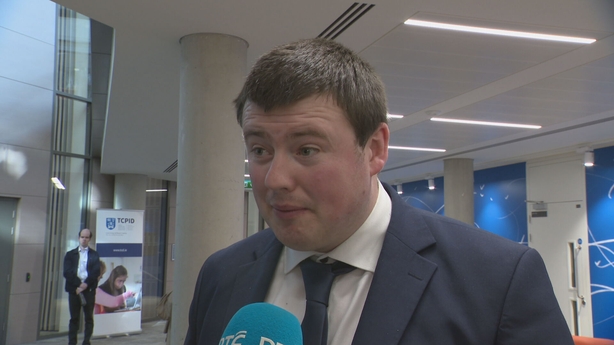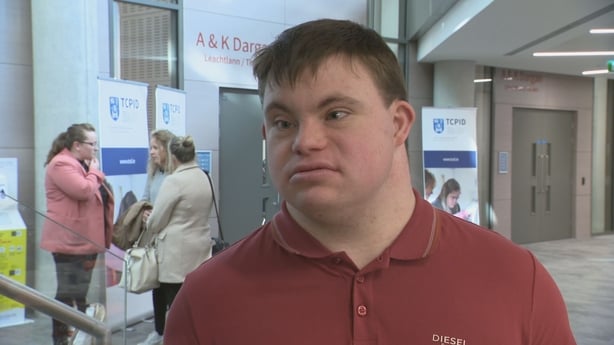Efforts are under way to expand access to third-level education to people with an intellectual disability nationwide.
A conference in Dublin heard that new initiatives aim to build on the success of the degree course offered by the Trinity Centre for People with Intellectual Disability, which is celebrating its 20th anniversary this year.
A three-year pilot programme, 'PATH 4 Phase 2', to support third-level course provision for students with intellectual disabilities nationwide is now under way.
"There is funding which we've just applied for," said Prof Michael Shefflin, Director of the Trinity Centre for People Intellectual Disability, "and it means that different versions of a programme, it isn't our programme necessarily, can happen throughout the country."
"So a youngster up in Donegal or in Kerry or Waterford, Dundalk will have an opportunity, will have a real option."
The centre's flagship course is the certificate in arts, science and inclusive applied practice, which incorporates a work placement for students with intellectual disabilities.

Today, graduates returned to the centre to tell current students about life in the workplace after university.
Stephen Ryan from Co Laois graduated in 2019 and works with Ernest & Young. He said he loves being part of a team.
Mr Ryan said: "Apart from Trinity, it was the first place to actually accept me for me, I think workplaces are focusing too much on the disability, while they should focus on ability.
"Everyone with a disability can bring a unique set of skills to the organisation."
Niamh Biddulph from Ashbourne, Co Meath works with An Post. She said employing someone with an intellectual disability changes lives.
She said: "Including someone like me as part of the employment network actually means that you are not only providing diversity and inclusion to your team."

"But you're also leading an example to the rest of the world leaders that this is possible, that we can include people with disabilities in the workforce."
Dualta Callaghan celebrated his 23rd birthday today and told the conference that he had just been made permanent at Grant Thornton.
"There's different departments...and if you work with the people," he says, "they just become your friends."
One of the employers present, Neil Byrne, a Partner with Ernest & Young, said employing people with intellectual disabilities inspires the rest of the workforce.
"We all have day-to-day challenges in our lives but when people see what a person with an intellectual disability overcomes to work in a normal workplace...they tend to focus on the bigger things and forget the small things... it inspires them," Mr Byrne said.







